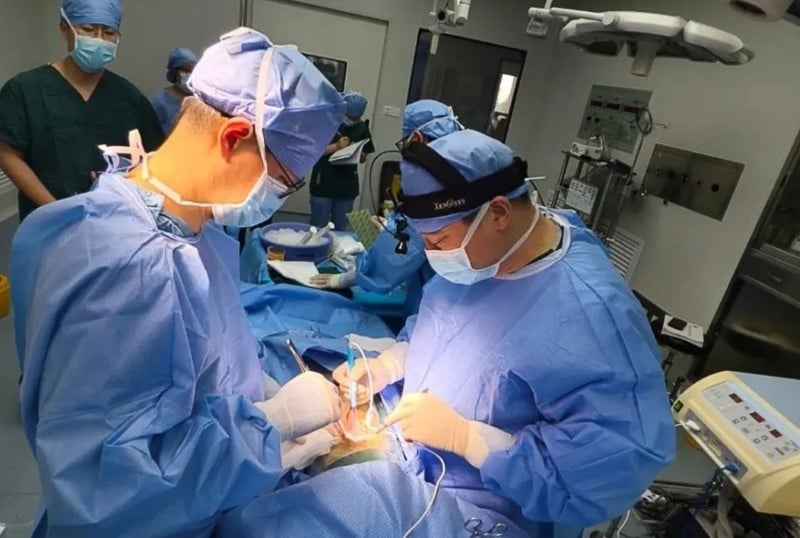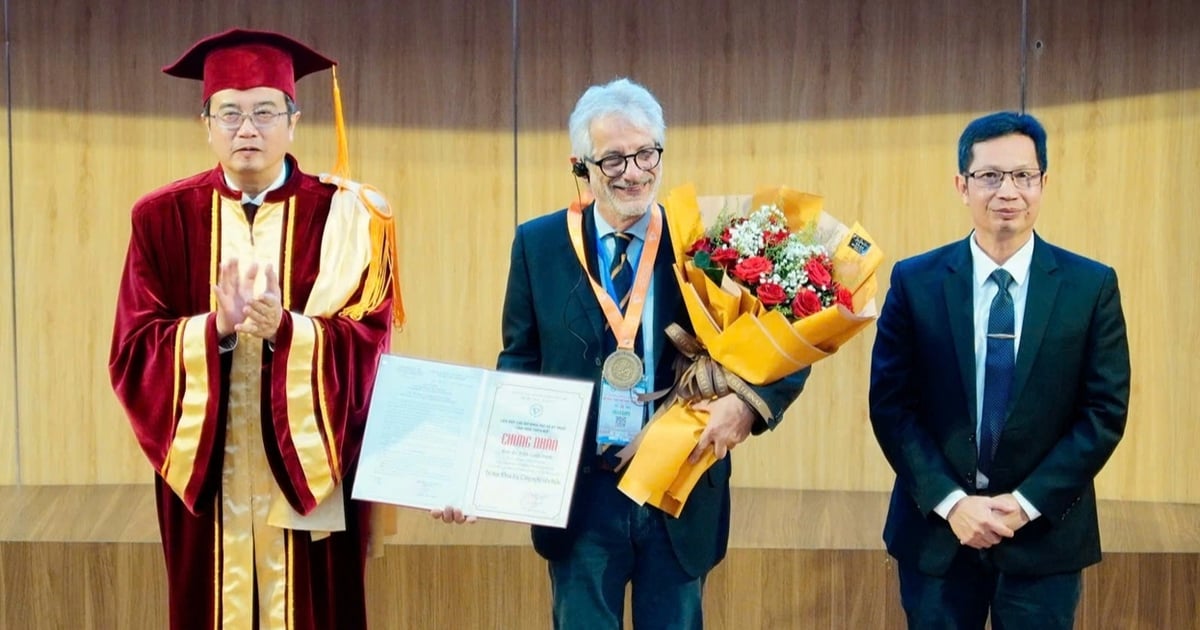Seven days after surgery, the 71-year-old cancer patient's internal organ function returned to normal.
 |
| Chinese doctors have achieved a major milestone in animal-to-human organ transplant research. (Photo: The First Affiliated Hospital of Anhui Medical University) |
In a world first, Chinese doctors have transplanted a gene-edited pig liver into a living patient, the latest milestone in a record-setting year for researchers in animal-to-human transplants, known as xenotransplantation.
In a recent post on its WeChat account, the First Affiliated Hospital of Anhui Medical University said that a 71-year-old man with severe liver cancer received the organ on May 17. By May 24, “the patient was able to walk freely, no hyperacute or acute rejection reactions were detected, the coagulation system was not impaired, and liver function had returned to normal.”
The achievement follows another breakthrough in March by a Chinese team from the Air Force Medical University who transplanted the first gene-edited pig liver into a brain-dead patient.
Also in March, a patient in the US became the first person in the world to receive a genetically modified pig kidney transplant, a procedure previously only performed on clinically dead patients.
The patient, who was suffering from end-stage renal failure, died suddenly earlier this month. Massachusetts General Hospital in Boston, where the surgery was performed, said there was “no indication” that his death was due to the transplant.
The second patient in the United States who received a gene-edited pig kidney in April is still alive and “brings hope for the development of pig-to-human xenotransplantation,” according to Anhui Medical University.
However, the complexity of the liver – which plays a role in key body functions such as metabolism and immunity – poses a greater challenge than the kidneys and heart, leading US researchers to say its function is “too powerful” for xenotransplantation, according to Anhui Medical University. The latest results indicate that “the Chinese scientist’s xenotransplantation technology is at the forefront of the world and will become one of the most important breakthroughs in the medical field.”
The Chinese organ transplant ethics committee approved the study because the patient had a large tumor in the right lobe of the liver that had not responded to other treatments and was at risk of rupture.
A 514-gram (18-oz) pig liver, containing 10 edited genes to prevent organ rejection and dysfunction, was transplanted into a patient after doctors confirmed his left lobe of the liver was unable to function adequately on its own.
According to hospital director Sun Beicheng, the transplanted pig liver now secretes about 200ml (nearly 7 fl oz) of yellow bile every day. Scan results confirmed that “the blood flow in the hepatic artery, portal vein, and hepatic vein of the transplanted pig liver was completely normal” one week after the surgery.
According to the university, the success of this surgery will make “porcine liver transplantation possible in the clinic.”
Recent successes by Chinese and US researchers have raised hopes that transplanting gene-edited organs from pigs could provide a solution to the global organ shortage, with demand outstripping the supply of human organs.
Source: https://baoquocte.vn/ky-tich-khoa-hoc-benh-nhan-ung-thu-duoc-ghep-gan-lon-bang-phuong-phap-cay-ghep-di-chung-272976.html











































![[Photo] Prime Minister Pham Minh Chinh chairs Government Conference with localities on economic growth](https://vstatic.vietnam.vn/vietnam/resource/IMAGE/2025/2/21/f34583484f2643a2a2b72168a0d64baa)

























































Comment (0)